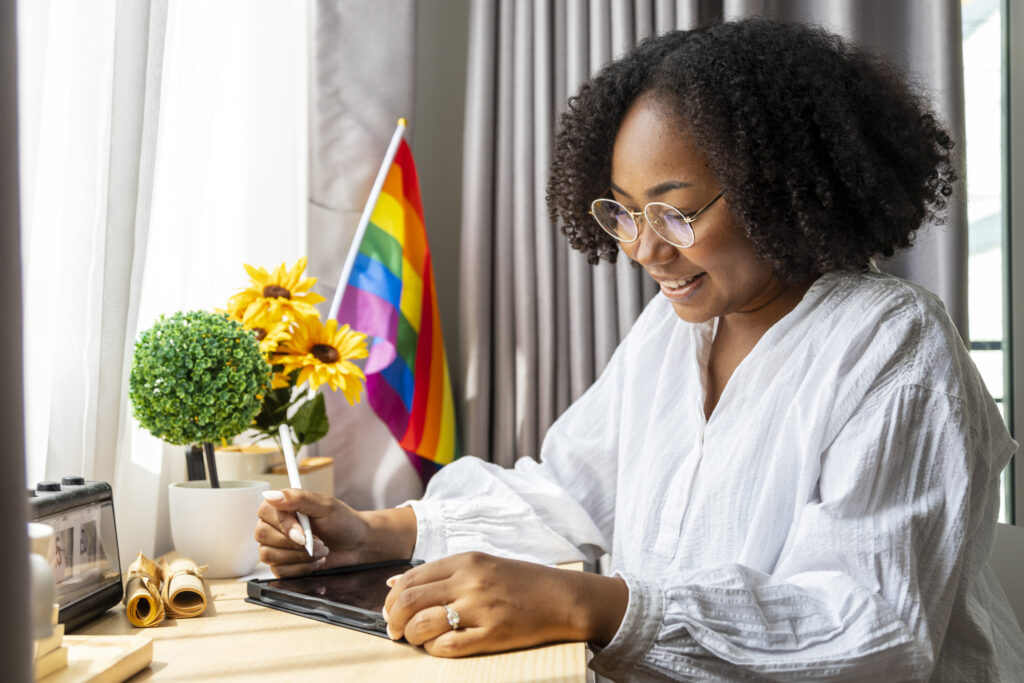
Lesbian, gay and bisexual people make up 3.1% of workers in the UK and with over 250,000 people reporting that the gender they identify with is not the same as their birth gender in the last census, we are seeing a more true picture of how many people are LGBTQIA+ in the UK. This is because the Office for National Statistics (ONS) began collecting sexual orientation and gender identity data in England and Wales the first time in The Census 2021. However, there is currently no reliable gender identity data available in Scotland and NI.).
But despite growing acceptance both at work and in our Communities, LGBTQIA+ people are still more likely to be treated less favourably and subjected to discrimination, so there is still a long way to go.
An estimated 1 in 5 LGBTQIA+ workers face discrimination, bullying and harassment at work simply because of their sexuality or gender identity. Further to this, an estimated 1 in 3 LGBTQIA+ workers hide who they are due to fears of being discriminated against or treated differently.
While trade unions and the LGBTQIA+ community are constantly fighting (and winning) for better rights for LGBTQIA+ people, we cannot do it alone. This is why being an LGBTQIA+ ally is so important.
The below guidance outlines the importance of allyship in the workplace, as well as ways you can be a better ally to improve the lives of your lesbian, gay, bisexual, transgender, queer or questioning, intersex, and asexual colleagues.
If you need help or advice, please contact us at help@community-tu.org or on 0800 389 6332.
Thank you. We have received your query
We have received your query and a member of our Service Centre Department will be in touch to discuss further with you.
Due to service demands it is not always possible for our advisors to reply to your query immediately. We aim to respond within 48 hours of receipt.
If your employer has invited you to a formal meeting (disciplinary, grievance or appeal) and you are seeking representation, if you have not already done so via this form, please provide us with all relevant supporting information including any notes/minutes from any investigation process and your email/letter of invitation, which should include full details of when and where the meeting is due to take place.
Please note that representation is not provided for investigation meetings.
If you have any further queries, please contact our Service Centre Department on 0800 389 6332 or at servicecentre@community-tu.org.
Not a member?
Let’s get to know each other.
"*" indicates required fields
"*" indicates required fields






